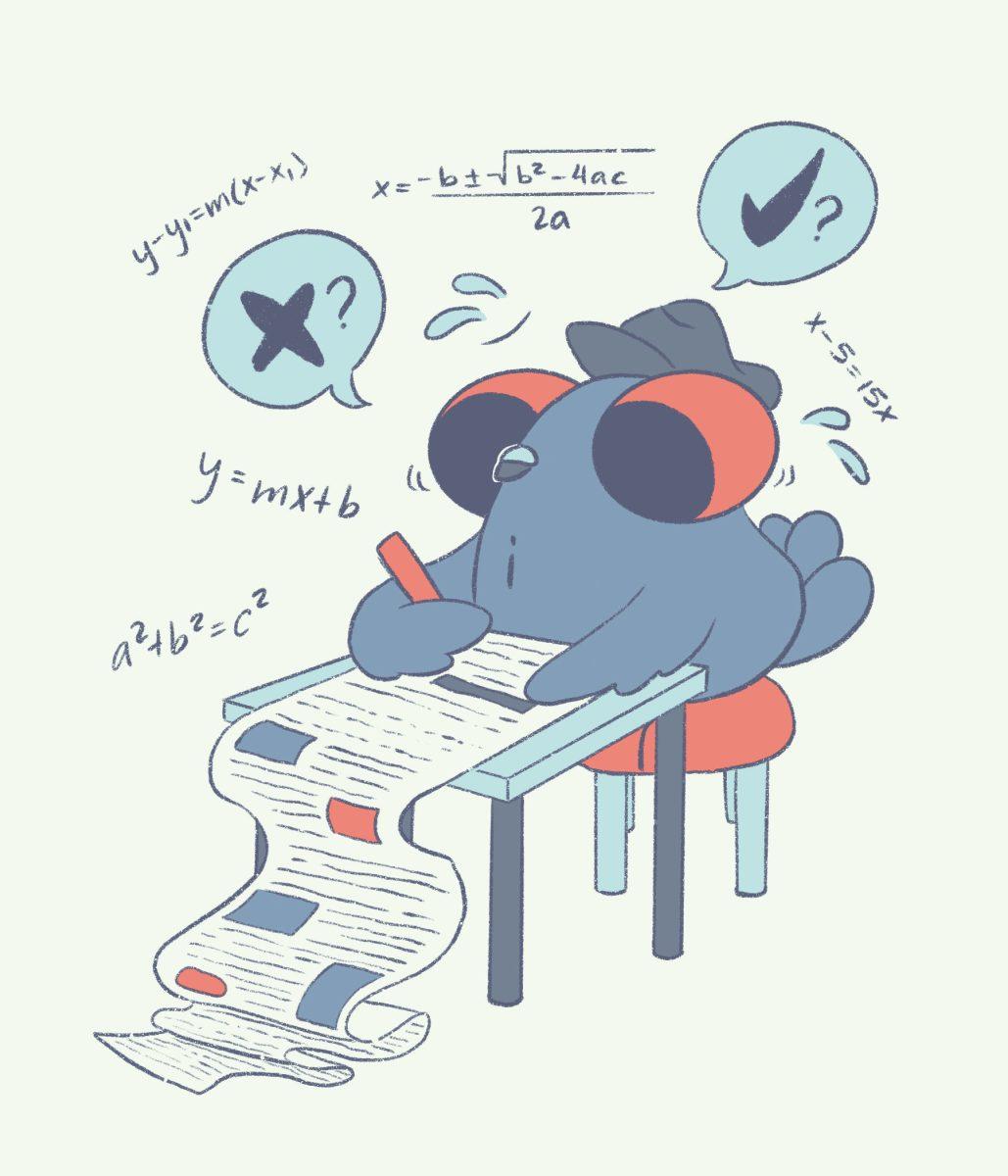After a long, hard week of studying, you take a deep breath and print your name on your exam booklet, eyes skimming over the first question. But as you try to make sense of the words, your heart sinks, your stomach churns and your mind suddenly goes blank.
If this experience sounds familiar, you’ve likely been a victim of test anxiety – a nearly universal experience for college students. Apart from the obnoxious physical symptoms and the inability to think clearly, test anxiety can drastically impact your performance and quality of life — even outside the classroom — if you don’t know how to manage it well. To take control of your exams and not let them control you, first consider the nature of your fears and approach them with a change in thinking.
Students normally fear exams for either one of two reasons. First, they worry they are not ready and are bound to fail due to their unpreparedness. This fear is valid, but it can be confronted by reducing expectations for perfection and making your study time feel as comfortable as possible.
“I advise students to sit down and have a friend that you usually enjoy relaxing with say, ‘We’re going to chat about every 15 minutes. We’re going to just flip through our notes, just flip through and just read, and then we’re going to chat,’” said Student Counseling Center psychologist Beverly Williams. “And so what you’re doing is trying to integrate something that feels really nice and supportive with something that you tend to feel very upset by.”
The second fear is more unfounded and pertains to missing out on future career opportunities because of a bad grade. Yes, exams are important, but one test in a college class cannot significantly alter the course of your entire future. From doctors and lawyers to engineers and businesspeople, it would be hard to come by a successful professional who has not performed poorly on or failed a test at some point.
“I cannot tell you how many people have gotten from point A to point B when their perfect plan didn’t work – because not all the time do perfect plans work,” Williams said. “So helping [students] just to get their own balance and speak to themselves in a rational, comforting way and then just remember, ‘okay, I’m going to do my best. I’m going to do everything it takes to do my best and be more relaxed.’”
Furthermore, exams are not even all that effective at predicting career success, which is presumably what most college students are ultimately after. Remind yourself that regardless of your performance on a test, you won’t gain or lose a significant job opportunity due to a single grade.
Taking tests is essentially like playing games, with your goal being to collect as many points as possible in the allotted time. People who test well do not frantically check how much time they have left, nor do they fixate on how they might be doing on an exam. It’s too hard to predict your score accurately, and Williams said sometimes it can be smarter to answer all the questions on a test your first time around than it is to skip them and run out of time to return to them.
“If you have to skip some questions or come back to them, I mean, I would still answer them at my best in that moment just in case there’s not enough time to come back and really parse them out,” she said.
For those who have not taken an in-person exam since March 2020, completing a timed written test in a cramped room brimming with other students – or even worse, at the Testing Center – may seem like a nightmare. To stave off any potential feelings of anxiety, Williams said to avoid associating with equally anxious peers right before the exam.
“You don’t want to stand around those folks who are like, ‘Oh my God, did you look at this part? Or did you look at that? Oh, I’m going to fail. I’m not ready,’” she said. “I mean, we need camaraderie to some degree. But that’s not the best kind before your test. So maybe look for a quiet place to do whatever your routine is. Look at a magazine, or, or whatever on your phone, but find something that’s relaxing.”
If you still find yourself panicking during the exam, Williams said “to start to take a breath or to calm yourself with your thoughts and get centered again.” Close your eyes, breathe in slowly through your nose for five seconds and then out through your mouth for another five seconds. Continue this deep breathing until you actually notice your body start to relax (it might take a few trials). Open your eyes and assure yourself that you studied and you’re doing the best you can. Since you may only have a minute to spend on this, it’s okay if your body does not feel exceptional as a result. The goal is to just feel okay enough to get through the test.
As for practical things, Williams said to take a shower, brush your teeth and exercise the day before the exam to refresh and ease your body into a state of normalcy. She also said to avoid caffeine and try not to review your notes during the hour before the test to help relax your mind.
Take your studying seriously, but remember that your grade on an exam does not accurately reflect how brilliant or unintelligent you are as a student. If you can’t remember how many points you scored on each of your exams last semester, don’t agonize about another test score you will also soon forget.







